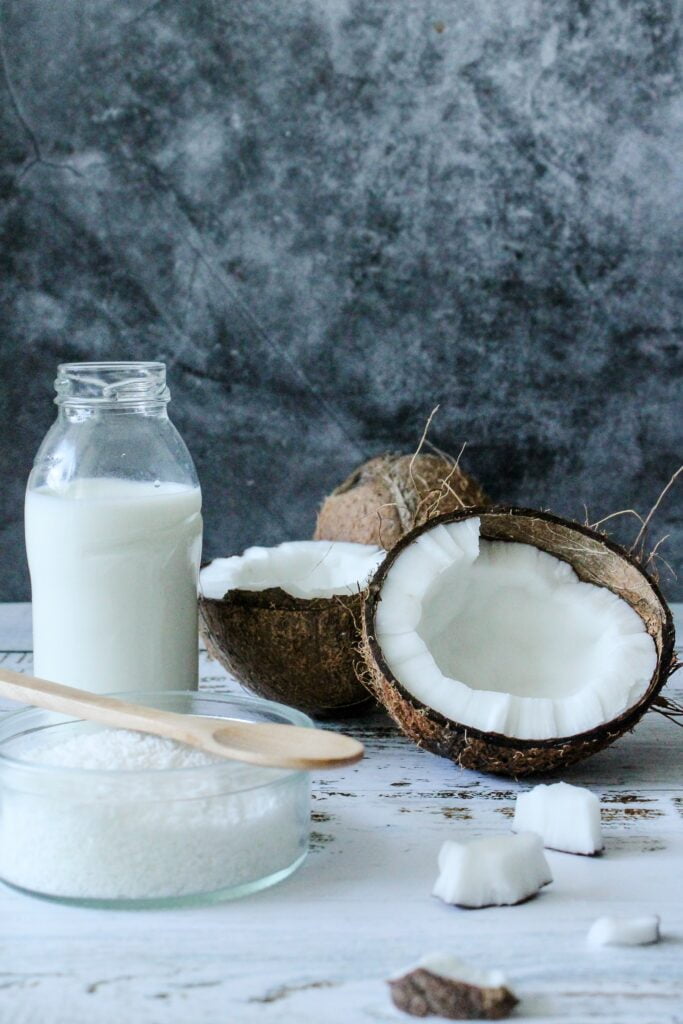As the popularity of plant-based diets continues to rise, so does the demand for plant milk. Whether you follow a vegan lifestyle, have lactose intolerance, or simply want to explore new flavours, plant milk offers a fantastic alternative to traditional dairy milk in baking. Not only do plant milks have unique flavours and textures, but they also provide various nutritional benefits, and you can even get them in your local milk delivery these days. However, it’s crucial to be mindful of potential additives in store-bought plant milk. In this article, I will explore how to use plant milk in baking while maximising its nutritional benefits and avoiding unwanted additives.

Nutritional Benefits of Plant Milk
- Lactose-Free: One of the primary reasons people turn to plant milk is its lactose-free nature. Lactose, a sugar present in dairy milk, can cause digestive issues for individuals with lactose intolerance. Plant milk, on the other hand, is naturally lactose-free, making it a gentle alternative for those with sensitive stomachs.
- Low in Saturated Fat: Many plant milks, such as almond, soy, and oat milk, are low in saturated fat compared to whole dairy milk. Reducing saturated fat intake can contribute to heart health and lower cholesterol levels.
- Rich in Essential Nutrients: Plant milk can be fortified with essential nutrients like calcium, vitamin D, vitamin B12, and omega-3 fatty acids, which are typically found in dairy milk. These nutrients are vital for bone health, immune function, and overall well-being.
- Suitable for Vegans and Plant-Based Diets: Plant milk is a staple for those following vegan and plant-based diets. Baking with plant milk allows individuals to enjoy their favorite treats while staying true to their dietary choices.
Using Plant Milk in Baking

- Substitution Ratios: In most baking recipes, plant milk can be substituted for dairy milk at a 1:1 ratio. This means you can easily swap cow’s milk with your preferred plant milk without altering the recipe’s consistency significantly.
- Flavour Profiles: Different plant milks offer distinct flavours that can complement specific baked goods. For instance, almond milk adds a subtly nutty taste, while coconut milk infuses a tropical note. Experiment with different plant milk varieties to find the flavours that best suit your baking creations. I like oat drink for baking as I find it super creamy.
- Thickness and Texture: Plant milk can vary in thickness and texture. Some plant milks, like coconut milk, have a creamier consistency, making them ideal for rich desserts like puddings or custards. Others, like soy milk, have a more neutral flavor, making them versatile for various recipes.
Avoiding Unwanted Additives
While plant milk can offer numerous nutritional benefits, it’s essential to be cautious about additives that some store-bought varieties may contain. Common additives to watch out for include:
- Sugar: Flavoured plant milks or sweetened varieties may contain added sugars. Opt for unsweetened options or those with minimal added sugar to control your sugar intake.
- Thickeners and Stabilisers: Some plant milks use thickeners and stabilisers to improve texture and shelf life. While these additives are generally safe, individuals with food sensitivities should check the ingredient list.
- Artificial Flavours and Colours: Certain brands may add artificial flavours and colours to enhance taste and appearance. Choose brands that prioritise natural ingredients and avoid artificial additives.

Final thoughts
Baking with plant milk is a fantastic way to embrace a more sustainable, compassionate, and health-conscious lifestyle. With a wide variety of plant milks available, you can experiment with different flavours and textures to enhance your baked goods. When selecting plant milk for baking, opt for fortified varieties to ensure you receive essential nutrients like calcium and vitamin D. Furthermore, always read the ingredient list to avoid unwanted additives. Embrace the versatility and nutritional benefits of plant milk in your baking, and open up a world of delicious, plant-based possibilities!


3 comments
Whatever solution or combination of solutions the operator chooses,
the Evolution Group brand ensures the world’s best quality.
Golden-evolution12
https://www.golden-evolution.com/
Thank you for the good information. I am also operating a website that provides good information. Please visit us later if you have time. evolution12
https://www.golden-evolution.com/
This is a great way to improve the nutritional value of your meals. The next time I cook for my family, I will use this technique. connections puzzle